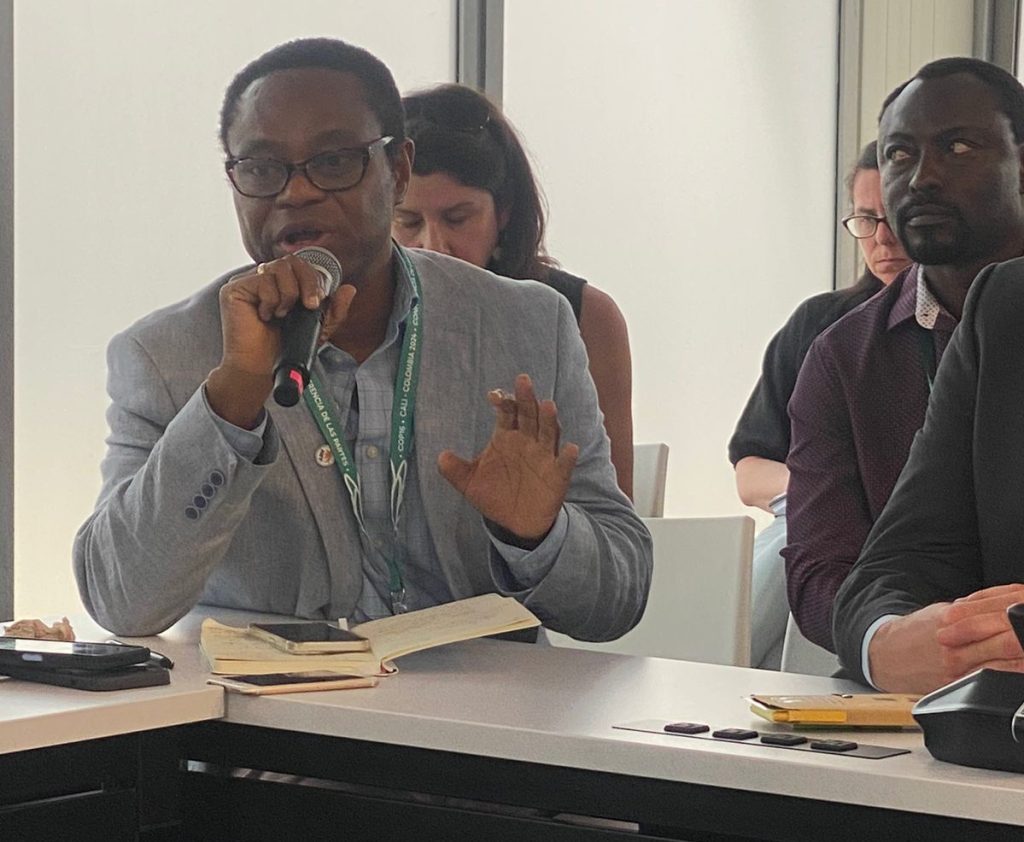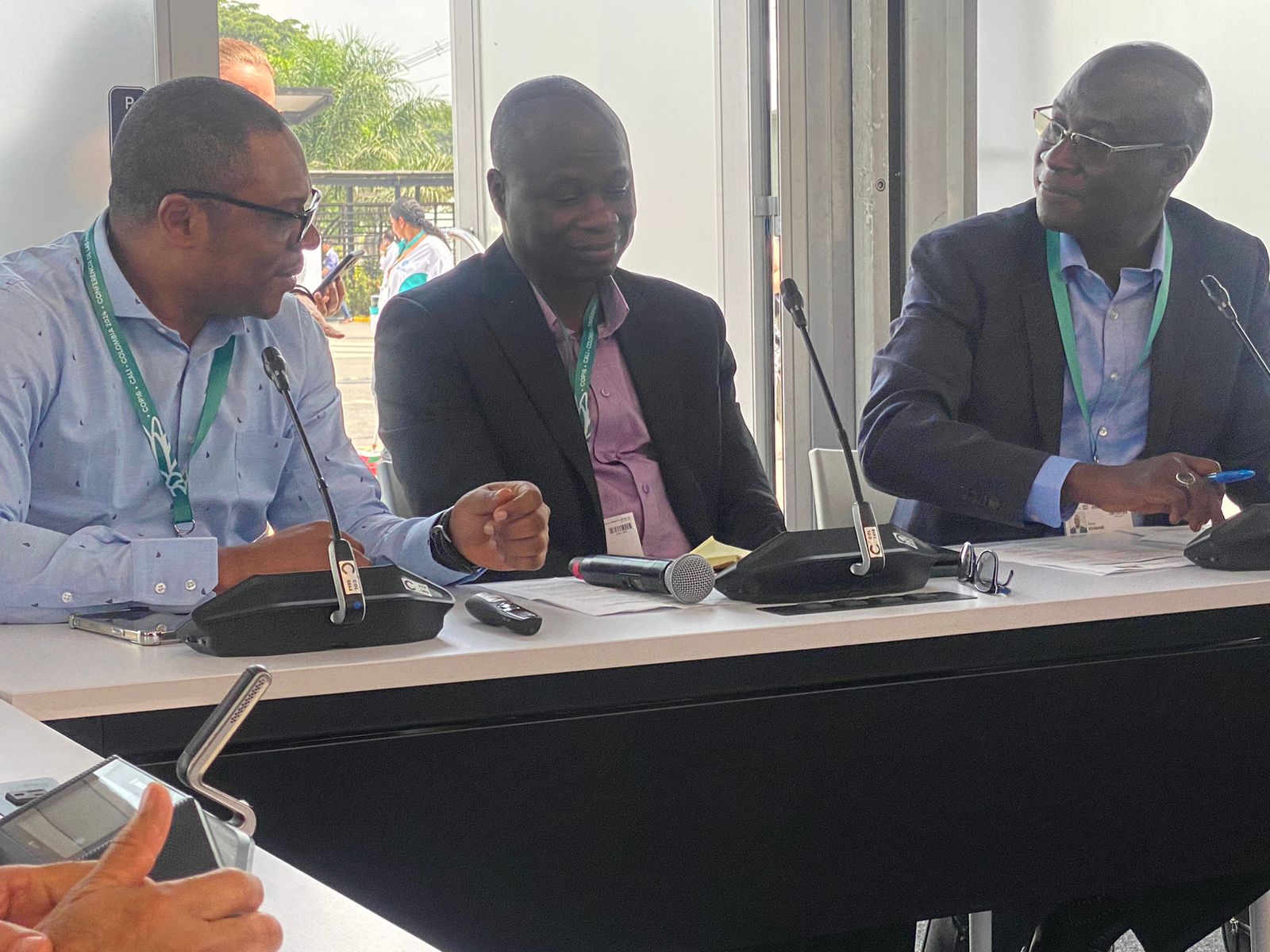The African Development Bank (AfDB) and the United Nations Environment Program (UNEP) are partnering to establish an Africa Biodiversity Finance Structure.
This initiative aims to support African countries in accessing natural capital and biodiversity finance to implement the Kunming-Montreal Global Biodiversity Framework.
It also comes as many African countries missed the deadline for submitting their updated National Biodiversity Strategic Action Plans (NBSAPs), with only 33 out of 196 countries submitting their plans by October 21, 2024.
Additionally, the African Biodiversity Strategy and Action Plan (ABSAP) is focused on developing a Regional Biodiversity Strategy and Action Plan. This plan will be informed by the four goals and 23 targets of the KMGBF, which aim to halt and reverse biodiversity loss by 2030, ensure sustainable management of biodiversity, and recognize the value of nature’s contributions to people.
AFDB representatives attending COP 16 in Cali, Colombia, noted that Africa has experienced a 40% decline in biodiversity in 40 years and called on different African governments to prioritise biodiversity protection.
This is part of the bank’s role in participating in the Advisory Committee on Resource Mobilization for the implementation of the KMGBF, which ensures adequate financial resources are mobilized at scale to fund the KMGB Regional Initiative on Financing Biodiversity.
Among its lined-up projects is the “Climate Resilience Project for the Preservation of Biodiversity (PRC/PB)” currently being prepared, which aims to promote eco-tourism and strengthen the resilience of ecosystems and local populations around the protected Areas in Madagascar.
Supporting the Sahel Commission’s Investment Plan and Priority Action Program (2018-2030) and has pledged $1.3 billion, out of the total 3.41 billion pledged. The Bank and Partners are implementing the NC4-ADF project with plans to implement in African countries. This will facilitate the delivery of the Bank’s HL vision for (2025-2027)
With the KMGBF funding falling short of the target USD 200 billion, the AFDB says it will facilitate resource mobilization through knowledge generation, exchange, and capacity building to bridge the identified KMGBF funding gap that is expected to be raised as new and additional finance by 2030 by exploring the application of innovative financing mechanisms such as the Biodiversity Benefit Mechanism.
In addition to these, the AFDB Development Fund’s Climate Action Window has taken steps to achieve Nature-based solutions (NbS) that can be deployed at local, national and regional scales to reverse prevent degradation and loss of natural capital and conserve, restore and manage ecosystems as natural carbon sinks.
However, in the press briefing on the sidelines of the ongoing COP 16, the Bank was also urged by relevant stakeholders and partners such as the African Wildlife Foundation where Vice President Fred Kwame Kumah called for integration in the protection of biodiversity,

“It is crucial to integrate biodiversity in most of the financial structures and urge governments to prioritise protection of Biodiversity.”
The Bank further pointed to a growing portfolio of interventions on natural capital and biodiversity projects, embedding nature-based solutions and ensuring investments in the river and forest basins of Chad, Niger, Congo, biosphere reserves and coastal areas, and subsequently, implementation of the Kunming-Montreal Global Biodiversity Framework (GMBF) in Africa.
For example, the Biosphere and Heritage of Lake Chad (BIOPALT project) funded by the Bank and implemented by UNESCO to establish an early warning system for droughts and floods, developing income-generating activities and the creation of biosphere reserves (US$ 6,500,000).
Other projects include the Great Green Wall Project USD 6.5 billion by 2025 to the Great Green Wall Accelerator to fast-track the implementation of the Great Green Wall Initiative through a multi-actor and structured approach to support the next programmatic cycle of the Great Green Wall Initiative (2021-2030).
The Desert-to-Power Initiative is being spearheaded by the Bank to harness the solar potential of the Sahel countries through the development of 10 GW of solar generation capacity to provide electricity to up to 250 million people across 11 countries of the Sahel through grid and off-grid solutions.
(This story was produced as part of the 2024 CBD COP 16 Fellowship organized by Internews’ Earth Journalism Network)





